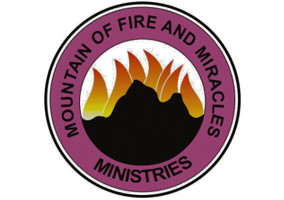The Charity Commission has found there was “serious financial mismanagement” at a Christian charity that held more than 100 bank accounts.
The commission has today (20 October) published the findings of a seven-year statutory inquiry into Mountain of Fire and Miracles Ministries International, which was registered on 30 October 2003.
The regulator first engaged with the charity in 2017 and early 2018 following reports of “serious incidents made by the former trustees over potential misappropriation of charitable funds and possible theft of gift aid”.
While visiting the charity in February 2018, the regulator raised concerns about its financial controls and governance, including the adequacy of the former trustees’ oversight of its branch structure.
At the time, the regulator found branch bank accounts had been opened without the knowledge of the then-trustees, and opened a statutory inquiry into the charity on 27 March 2018.
Appointment of interim manager
When the inquiry began, Mountain of Fire and Miracles Ministries International was governed by a constitution dated 26 September 2004.
One of the constitution’s clauses stated that “trustee A”, the founder and general overseer of Mountain of Fire and Miracles Ministries Worldwide, had the power “to appoint trustees and a secretary who shall together with the general overseer constitute the executive committee”.
Following the resignation of three trustees in 2018, trustee A exercised this power by appointing five additional trustees.
However, three of these individuals were employees of the charity and continued to be remunerated.
The commission said this was in breach of clause 10 of the charity’s governing document and “created difficulties when managing conflicts of interest, particularly when the trustees needed to discuss employment matters”.
“The inquiry identified serious concerns over the role and independence of trustee A, which impacted the extent to which the other trustees of the charity were able to act in the best interests of the charity,” its report said.
“The inquiry identified that the charity operated by means of a branch structure, with poor and inadequate processes and reporting procedures between the branches and the central office which, due to a lack of oversight and scrutiny by the former trustees, created a risk to the charity’s assets.”
On 1 August 2019, due to “serious concerns regarding the trustees’ ability to carry out their duties effectively”, the regulator appointed an interim manager to work with the remaining trustees to implement financial controls.
Lack of adequate oversight and control
During its inquiry, the regulator found the charity’s trustees could not demonstrate they had adequate oversight or control over more than 100 bank accounts operated by over 90 individual branches.
It said the branches operated autonomously, opening bank accounts without central oversight and failing to report income on time, creating substantial risks to charitable funds and resulting in inaccurate financial reporting.
“This lack of oversight by trustees led to financial losses for the charity – for example, some branches occupied property without first obtaining the necessary planning permission and one of which was subject to costly legal action by a council,” it said.
“Further losses arose because of the former and current trustees’ failure to regularise employment contracts which resulted in payments to settle employment disputes.”
The regulator found that “substantial funds” had been held in a particular bank account, but the purpose of those funds was unclear, resulting in a freezing order on 2 February 2022 to protect the funds.
It was also discovered that the lack of financial controls had created an environment where informal and unapproved loan agreements were made.
Misconduct and mismanagement
The commission’s report highlights other findings, including a failure by the former trustees to submit accurate and timely accounts, trustee annual reports (TARs) and annual returns on time.
For instance, accounts and TARs for the financial years ending in 2015, 2016 and 2017 were filed 152, 163 and 151 days late, respectively.
The commission said the charity’s governance had failed to adapt as it grew, and that when the interim manager was appointed, “the existing systems for governance were ad hoc, ill-defined, and not subject to appropriate checks and controls”.
“The inquiry also determined that the founder and general overseer, trustee A, exercised too much authority over the charity and the other trustees,” its report said.
“The inquiry also found that conflicts of interest weren’t given proper consideration or acted upon and resolved.
“The failure by the current and former trustees to ensure that the governance structures and policies of the charity were suitable for the size and structure of the charity is misconduct and/or mismanagement in the administration of the charity.”
‘Rapid growth comes with larger potential risks’
On 13 September 2024, the commission issued an order to Mountain of Fire and Miracles Ministries International which directed the trustees to complete actions around the submission of charity accounts, governance changes, employment and human resource issues, charity assets, policies and administrative matters.
Having monitored the performance of the trustees against the specified actions, the commission is now satisfied that these have been completed.
Amy Spiller, head of investigations at the commission, said: “The rapid growth of a charity comes with correspondingly larger potential risks, as our inquiry clearly shows.
“In this case, the trustees’ fundamental failure to maintain financial controls meant donor funds were at serious risk across their entire network.
“Following the intervention of the commission and the interim manager, the trustees were better able to implement essential reforms, meaning the charity can now operate effectively and focus on delivering its charitable objects.”










